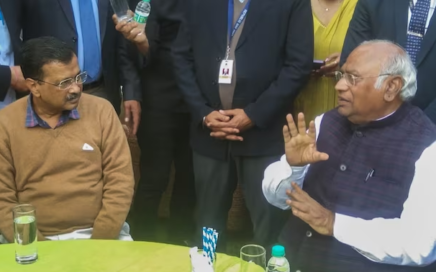Nagpur: A recent study conducted by anthropologist Dr. Balamurali Natarajan and political economist Dr. Suraj Jacob challenges the widely held perception that India is predominantly a vegetarian nation. In an interview to Shobha Warrier published on the Rediff.com portal, the study reveals that only approximately 20% of Indians are vegetarians, while the remaining 80% are non-vegetarians or meat-eaters. The researchers assert that eating habits in India are more influenced by geographical factors than by caste, religious, or gender considerations.
The myth of India as a vegetarian country has been shattered, in part, by political motivations, particularly since the Bharatiya Janata Party (BJP) came to power. The study, titled ‘Provincialising’ Vegetarianism Putting Indian Food Habits in Their Place, conducted in 2018 and updated in 2020, utilized extensive data from the National Sample Survey Office (NSSO), the National Family Health Survey (NFHS), and the India Human Development Survey (IHDS).
Geographical influence on eating habits:
The researchers emphasize that geographical and agro-ecological factors play a significant role in shaping dietary preferences in India. Coastal regions, for example, historically tend to have a higher prevalence of fish consumption. The study contends that where individuals live in India has a more substantial impact on their food practices than factors such as caste, religion, or gender.
Caste, elites, and vegetarianism:
The study notes that while there are vegetarians in India, they are often associated with privileged positions in caste and power hierarchies. The elites, comprising social, economic, and political elites, have historically had a voice in shaping governance and policies. The researchers argue that the presence of these elites, particularly in Western countries, reinforces the global image of India as a vegetarian nation.
Language and power structures:
The study delves into the linguistic nuances surrounding vegetarianism, highlighting the term ‘non-vegetarian’ as a reflection of power structures in society. The default assumption that vegetarianism is the norm perpetuates a certain moral and cultural value associated with the choice. The study suggests that the term ‘non-vegetarian’ further solidifies the power structures and morality created by the vegetarian elites.
Gender dynamics and patriarchy:
The research reveals a gender gap in reporting vegetarianism, with women more likely to identify as vegetarians. The study attributes this gap to patriarchy, where women are designated as the bearers of traditions and are expected to conform to certain dietary practices. Cultural politics also play a role, as the politicization of culture influences how people respond to survey questions.
Regional disparities:
One of the most striking findings of the study is the significant regional disparities in dietary habits within India. While overall statistics indicate that only 20% of the population is vegetarian, state-wise differences reveal dramatic variations. Geography, more than caste or wealth, emerges as a major contributing factor in food practices.
The study by Dr. Balamurali Natarajan and Dr. Suraj Jacob challenges the prevalent myth of India as a vegetarian nation, shedding light on the complex interplay of geographical, cultural, and political factors that shape dietary habits. The researchers advocate for a more nuanced understanding of India’s diverse eating habits and emphasize the importance of dispelling misleading stereotypes through credible statistical data.















